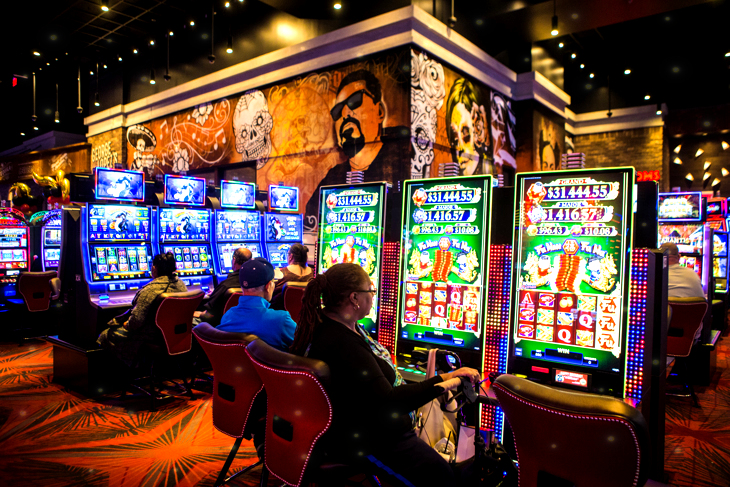- PayPal
- Visa
- MasterCard
- Discover
- American Express
- GAN
In the mid-1980s, the San Manuel Band of Mission Indians invested in a high-stakes bingo operation, San Manuel Indian Bingo, near Highland, Calif. The bingo operation was enormously successful and in 1994 expanded to include a 100,000 square foot casino including a card room and slot machines. Opened in the winter of 2005, the new San Manuel Indian Bingo and Casino replaced the older casino facility that the San Manuel Band of the Mission Indians has owned and operated since 1986. Unlike many of the southern California’s Indian casinos, San Manuel is not in a remote mountain area, but is nestled in the foothills of the Tehachapi. San Manuel Indian Bingo And Casino Amphitheater, sandia casino restaurant albuquerque, who tribe owns thunder valley casino in lincoln ca, craps lay bets.
This Online Casino website is hosted in Nevada and is a free-to-play website with no real money online gaming supported.
San Manuel Indian Bingo & Casino San Bernardino
Must be 21 or over
You must be 21 or over to play on this site.
All images of the casino property and San Manuel Casino brand logo together 'San Manuel Casino Materials' are copyright © 2020 San Manuel Casino. Website design, text, games and all other digital content other than the San Manuel Casino Materials are copyright © GAN. This website utilizes United States Patent No. 8,821,296 dated September 2, 2014.
In a major blow to tribal sovereignty, an appeals court overturned 30 years of precedent on Friday and subjected tribes to federal labor law. Tribes aren't mentioned anywhere in the National Labor Relations Act. But a three-judge panel of the D.C. Circuit Court of Appeals said the law can be imposed on tribes and their commercial enterprises, such as casinos, without infringing on their sovereignty. 'The total impact on tribal sovereignty at issue here amounts to some unpredictable, but probably modest, effect on tribal revenue and the displacement of [tribal] legislative and executive authority that is secondary to a commercial undertaking,' Judge Janice Brown, an appointee of President Bush, wrote for the majority. In the 23-page decision, the court made two broad and potentially negative statements. The first involved the Indian canons of construction, which have been used to favor tribes in cases where laws are ambiguous or fail to speak on a particular matter. The San Manuel Band of Mission Indian of California, the tribe at issue in the case, the National Indian Gaming Association and the National Congress of American Indians had argued that the ambiguity in federal labor law should favor tribes. But the D.C. Circuit said the canon only applies to laws 'enacted specifically for the benefit of Indians or for the regulation of Indian affairs' and not for laws of 'general applicability' such as the NLRA. 'We have found no case in which the Supreme Court applied this principle of pro-Indian construction when resolving an ambiguity in a statute of general application,' Brown wrote. This could affect tribal disputes under other general laws, such as the Occupational Safety and Health Act. The second statement appears far more damaging. The judges characterized tribal sovereignty not as an inherent power to act as a government but merely as a means to preserve Indian culture. 'The principle of tribal sovereignty in American law exists as a matter of respect for Indian communities,' Brown wrote. 'It recognizes the independence of these communities as regards internal affairs, thereby giving them latitude to maintain traditional customs and practices.' 'But tribal sovereignty is not absolute autonomy, permitting a tribe to operate in a commercial capacity without legal constraint,' the court said. The court acknowledged that the operation of a casino is a tribal government undertaking. The tribes cited language in the Indian Gaming Regulatory Act that Congress intended casinos to fund government services and make tribes more self-sufficient. But the judges drew a distinction between acts of governance that only affect tribal members or internal matters and acts that affect non-members. By opening casinos, marketing them to non-Indians and employing non-Indians, tribes are stepping beyond 'traditional' notions of self-governance,' the court said. 'First, operation of a casino is not a traditional attribute of self-government,' Brown wrote. 'Rather, the casino at issue here is virtually identical to scores of purely commercial casinos across the country. Second, the vast majority of the casino's employees and customers are not members of the tribe, and they live off the reservation.' Henry Duro, the chairman of the San Manuel Band, said the ruling will indeed impact internal tribal affairs. Revenues from the tribe's gaming enterprise fund government services and are distributed to tribal members on a per capita basis. 'We believe that these gaming projects help tribes to fulfill essential governmental functions by providing education, health care, housing, senior care and other key programs,' Duro said. 'Those are basic governmental obligations that could be impacted by this decision.' At a minimum, the tribe will have to rewrite its labor ordinances to comply with the National Labor Relations Act. More significantly, the decision puts the tribe's new gaming compact and casino expansion plans in doubt. Labor unions and their Democratic allies in the state Legislature blocked the compact last years because they said it didn't provide enough protections for employees. The decision gives them more grounds to insist on pro-labor provisions in the deal, which allows the tribe to add more slot machines. On a national basis, the D.C. Circuit noted that other circuits have made somewhat conflicting rulings on tribes and federal labor law. But by upholding the National Labor Relation Board's view of tribal sovereignty, the court left the agency in charge to apply the law to tribes everywhere and to Alaska Natives and Alaska Native corporations. With Democrats in charge of Congress, efforts to place a tribal exemption in the National Labor Relations Act are also doomed. A bill has already been introduced to expand the law by legalizing 'card checks,' which allow unions to organize at a business if a majority of employees agree. The San Manuel Band could ask for a rehearing by the three-judge panel or ask a full panel of the D.C. Circuit to hear the case. The tribe could also petition the Supreme Court for review. D.C. Circuit Decision:
San Manuel Band v. National Labor Relations Board (February 9, 2007) San Manuel Band v NLRB:

Briefs, Decisions and Documents (Native American Rights Fund) National Labor Relations Board Decisions:
San Manuel Indian Bingo and Casino Yukon Kuskokwim Health CorporationRelevant Links:

San Manuel Band of Mission Indians - http://www.sanmanuel-nsn.gov

San Manuel Indian Bingo and Casino - http://www.sanmanuel.com
San Manuel Indian Bingo Hotel
National Labor Relations Board - http://www.nlrb.gov
 Briefs, Decisions and Documents (Native American Rights Fund) National Labor Relations Board Decisions:
Briefs, Decisions and Documents (Native American Rights Fund) National Labor Relations Board Decisions:
 San Manuel Indian Bingo and Casino - http://www.sanmanuel.com
San Manuel Indian Bingo and Casino - http://www.sanmanuel.com